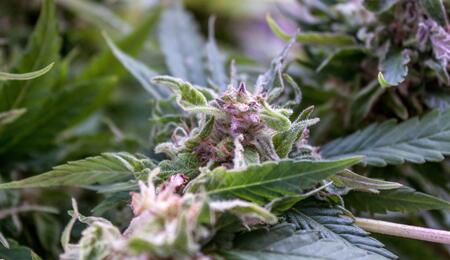Maine Republican Stands Up for Medical Marijuana Grown in Subsidized Housing

Deborah J. Sanderson (R): "You have instilled fear of homelessness upon people who are ill"
Deborah J. Sanderson (R): "You have instilled fear of homelessness upon people who are ill"
SOURCE: www.rawstory.com AUTHOR: Stephen C. Webster Despite fears over whether the federal government would pull all its housing funds, the Maine State Housing Authority voted Tuesday to delay implementation of a rule that would ban growing and using medical marijuana in subsidized housing, giving sick and disabled tenants 180 more days of protection before a final decision on the rule. All it took was the threat of a lawsuit from the American Civil Liberties Union and a serious tongue lashing from a prominent Maine Republican official. "You have instilled fear of homelessness upon people who are ill," Maine State Rep. Deborah J. Sanderson (R) said Tuesday, according to the Maine Public Broadcasting Network. "I receive phone calls every day. I am distressed that an agency in Maine dedicated to helping our poor obtain housing would take this kind of action against our folks who are not only poor, but ill." Sanderson sponsored a bill last year that loosened Maine's medical marijuana law by removing federal access to the state's patient database. According to The Portland Press Herald, she even once stood up for a constituent facing eviction from subsidized housing over his marijuana grow, and the housing authority backed off. "This is, as far as I'm concerned, a law against poor people," she told Herald reporter Leslie Bridgers shortly before appearing with constituents at Tuesday's housing authority meeting. [caption id="attachment_31198" align="alignnone" width="800"] @vilahaze, Grower @ertaverd, Photographer
@vilahaze, Grower @ertaverd, Photographer[/caption] The state says its Housing Choice Voucher program pays about 30-40 percent of monthly rent and utility bills for about 3,800 low-income households, but those funds can be pulled if the recipient gets caught in any sort of criminal activity. And while Maine has legalized medical marijuana for people with certain medical conditions, federal law still considers production, sales and use of the drug to be serious crimes. Adding to the authority's troubles, a recent audit by the U.S. Department of Housing and Urban Development stung directors for mismanagement, jeopardizing some future funds. In a rule passed earlier this month, the Maine State Housing Authority banned rental assistance to individuals who "use, possess, or cultivate medical marijuana in apartments where rent and utilities are federally subsidized under the Housing Choice Voucher Program, also known as Section 8." In the face of the backlash, however, housing authority officials voted unanimously on Tuesday to suspend that rule for 180 days and ask the federal government for further clarification. If the feds respond to the authority's request for guidance, it could help not just Maine, but many state agencies around the nation grappling with similar questions. The potential for prosecution or loss of federal dollars is a concern for lawmakers around the country, facing a growing number of popular initiatives to legalize medical marijuana despite the federal government's refusal to budge. Maine's own lawmakers took that same possibility into account in writing the state's medical marijuana law too, adding the caveat that landlords may refuse registered medical marijuana patients if they're concerned about losing federal funding. In a more recent example, police in Ellsworth, Maine said Tuesday that they returned 17 marijuana plants worth nearly $13,000 that were stolen from one of the state's licensed growers - but they too had to grapple with the potential violation of federal law. While the Obama administration announced in 2009 that arresting medical marijuana patients weren't a good use of law enforcement resources, U.S. Attorneys have worked with the Internal Revenue Service very effectively since then to shut down and seize medical marijuana dispensaries around the country - making it entirely feasible that financial strings could be pulled if the administration chooses. In Maine, however, that would cause serious problems for the Obama administration, especially if they went after the state's housing authority over just medical marijuana. Federal housing dollars subsidize a lot more than just 3,800 households in Maine. Data produced by the state's housing authority shows that nearly 28,000 households fell under the "subsidized housing unit" category last year, many of them being seniors and the disabled, or those with special needs. While it's not clear how many medical marijuana patients there are in the state's subsidized housing program, the state cited only six in particular who're actively growing the stuff. Maine's medical marijuana law created eight nonprofit dispensaries around the state, and allows patients to carry up to two and a half ounces, or grow as many as six plants at once.
S
Soft Secrets



